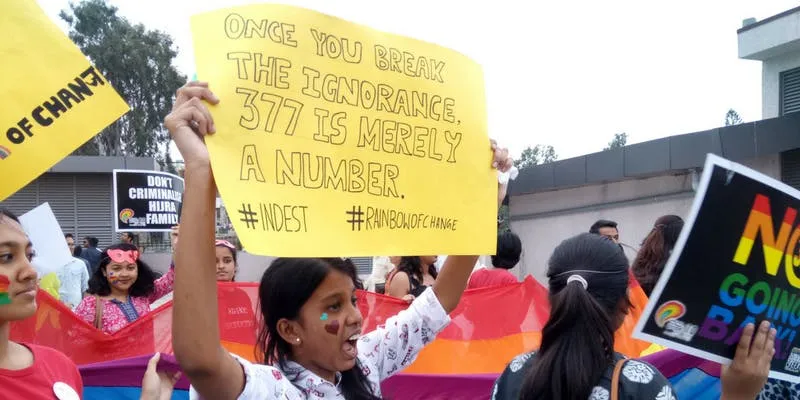Supreme Court's revisiting of Section 377 welcomed by LGBTQ community
The Supreme Court will revisit Section 377 of the Indian Penal Code that criminalises homosexuality.

The Supreme Court today said it would revisit its judgement setting aside the Delhi High Court’s ruling that decriminalised homosexuality. A three-member bench of the apex court, headed by Chief Justice of India Dipak Misra, said it will set up a bench to review Section 377 of the Indian Penal Code.
The Supreme Court said, “A section of people or individuals who exercise their choice should never remain in a state of fear. Choice can’t be allowed to cross boundaries of law, but confines of law can’t trample or curtail the inherent right embedded in an individual under Article 21 of the Constitution.”
The review of Section 377 was met with optimism from LGBTQ activists and supporters.
Based on a writ petition filed by five members of the LGBTQ community, the Supreme Court acknowledged there was a fear of police action. The bench also sought a response on the same from the Central government.
The constitutional validity on Section 377 has been under debate since 2009, when the Delhi High Court decriminalised homosexuality. In 2013, a Supreme Court bench headed by Justices G S Singhvi and S J Mukhopadaya set the judgement aside.
After several public protests and legal petitions, the LGBTQ community found hope when the Supreme Court said the right to privacy was a fundamental right guaranteed by the Constitution, and stated, “sexual orientation is an essential attribute of privacy”.
The British-era Section 377 of the IPC criminalises sexual activities that are considered “against the order of nature”, including intercourse between consenting adults from the LGBTQI (lesbian, gay, bisexual, transgender, queer, intersex) community. Convictions under Section 377 could result in a fine and a maximum jail sentence of 10 years.







